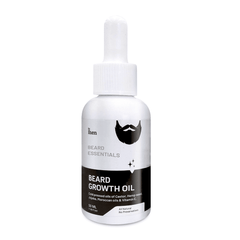Vitamin B Complex Health Benefits | How to Overcome Vitamin B Deficiency?

Vitamin B complex is a group of eight essential B vitamins that are important for maintaining good health. These vitamins include B1 (thiamine), B2 (riboflavin), B3 (niacin), B5 (pantothenic acid), B6 (pyridoxine), B7 (biotin), B9 (folate), and B12 (cobalamin).
Each of these vitamins has its own unique benefits and functions in the body, but they all work together to help the body convert food into energy, support brain function, and promote healthy skin, hair, and nails. They also play a role in maintaining healthy nerve cells, DNA production and the production of red blood cells. A balanced diet including a variety of foods, such as meat, fish, dairy products, eggs, and leafy green vegetables, can provide enough of the B vitamins. However, certain people, such as vegetarians and vegans may need to take B vitamin supplements.
Amazing Health Benefits of Vitamin B Complex for Men:
Have a look at the amazing health benefits of Vitamin B Complex.
1. Vitamin B1 (Thiamine)
Vitamin B1, also known as Thiamine, plays a key role in several bodily functions. It helps the body convert carbohydrates into energy, supports cognitive function and memory and can help to lower the risk of heart disease. It’s important for the proper functioning of the nervous system and can help to alleviate the symptoms of conditions like Wernicke-Korsakoff Syndrome and Beriberi caused by deficiency.
2. Vitamin B2 (Riboflavin)
Vitamin B2, also known as Riboflavin, is important for energy production, skin, hair and nail health and it helps the body to break down carbohydrates, proteins and fats. It helps to protect the cells from oxidative stress and can help prevent migraines. It plays a role in the production of red blood cells and the metabolism of iron. It also helps to convert vitamin B6 and folate into their active forms.
3. Vitamin B3 (Niacin)
Vitamin B3, also known as Niacin, plays a key role in energy metabolism, maintaining healthy skin and nerves and it helps to lower cholesterol levels and improve circulation. It’s also important for the production of sex and stress-related hormones in the adrenal glands and it helps to regulate blood sugar levels. It may also have potential in reducing the risk of certain types of cancer and age-related cognitive decline.
4. Vitamin B5 (Pantothenic Acid)
Vitamin B5, also known as Pantothenic Acid plays a key role in energy metabolism and the synthesis of hormones and cholesterol. It supports the adrenal glands and helps the body cope with stress. It helps to maintain healthy skin, hair, and eyes and it plays a role in the production of red blood cells and the metabolism of protein, carbohydrates and fats.
5. Vitamin B6 (Pyridoxine)
Vitamin B6, or Pyridoxine, plays a key role in the formation of red blood cells and the synthesis of neurotransmitters. It helps the body convert food into energy and it helps to support the immune system, metabolism and the function of the nervous system. It also helps in the formation of hemoglobin, which carries oxygen in the blood and helps to regulate hormones related to mood and behavior. It also may help reduce symptoms of premenstrual syndrome (PMS) and morning sickness during pregnancy.
6. Vitamin B7 (Biotin)
Vitamin B7, also known as Biotin, helps the body convert food into energy and is important for healthy skin, hair, and nails. It plays a role in the metabolism of carbohydrates, fats, and amino acids. Biotin deficiency is rare, but when it occurs, it can cause hair loss, skin rash, and a scaly red rash around the eyes, nose, and mouth. It may also have a potential benefit in diabetes management by improving glucose tolerance and insulin sensitivity.
7. Vitamin B9 (Folate)
Vitamin B9, also known as Folate or Folic Acid, plays a key role in the formation of red blood cells and the proper development of the nervous system. It helps the body convert food into energy and it’s important for pregnant women as it helps to prevent birth defects in the baby’s brain and spine. It also helps to lower the risk of heart disease, depression, and certain types of cancer, particularly colon cancer. It may also help to improve cognitive function, particularly in older adults with mild cognitive impairment.
8. Vitamin B12 (Cobalamin)
Vitamin B12, also known as Cobalamin, plays a key role in the formation of red blood cells and the proper functioning of the nervous system. It helps the body convert food into energy and it helps to maintain healthy nerve cells and the production of DNA. It is also important for maintaining the health of the myelin sheath that surrounds and protect nerve cells. It also plays a role in the metabolism of homocysteine, an amino acid that may be associated with an increased risk of heart disease. Deficiency in vitamin B12 can cause anemia, neurological problems, and other health issues.
How to Overcome Vitamin B Deficiency in Men?
There are several ways to overcome vitamin B deficiency, including:
- Eating a Balanced Diet: A diet that includes a variety of foods, such as meat, fish, dairy products, eggs, and leafy green vegetables, can provide enough of the B vitamins.
- Taking Supplements: For people who are unable to get enough B vitamins from their diet, supplements can be an effective way to prevent or treat deficiency. It is important to consult a healthcare professional before starting any new supplement regimen.
- Vitamin B-Rich Foods: Eating foods that are high in B vitamins, such as liver, kidney, fish, meat, eggs, dairy products, leafy green vegetables, and fortified cereals, can help to increase your intake of these essential nutrients.
- Fortified Foods: Some foods, such as breakfast cereals and bread, are fortified with B vitamins. Consuming these fortified foods can also help to increase your intake of these essential nutrients.
- Special Diets: People with certain medical conditions or dietary restrictions, such as vegetarians or vegans, may need to take special care to ensure that they are getting enough B vitamins.
- Vitamin B12 Shots or Nasal Spray: For people with B12 deficiency, a deficiency caused by low stomach acid or malabsorption, a supplement like B12 shots or nasal spray can be an effective way to prevent or treat deficiency.
Always avoid over dosages, and take only in the prescribed quantities. Even if there are no side effects or side effects are very minimal, any food, supplement or medicine should be only taken in optimum, prescribed amounts.
Related Articles:
Disclaimer: The information provided on this page is not a substitute for professional medical advice, diagnosis, or treatment. If you have any questions or concerns about your health, please talk to a healthcare professional.







Leave a comment